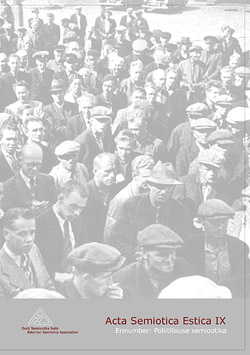Subjekti eneseloome võimusuhetes: Agambeni, Badiou’ ja Foucault’ subjektsuseteooriad semiootilisest vaatepunktist
The Subject’s Self-Formation in Power Relations: Theories of Subjectivity in Agamben, Badiou and Foucault from the Semiotic Perspective
Author(s): Ott PuumeisterSubject(s): Cultural Essay, Political Essay, Societal Essay
Published by: Eesti Semiootika Selts
Keywords: subjectivity; discourse; power relations; emancipation; autocommunication; singularity; event; politics
Summary/Abstract: Within the liberal democratic context the individual is mostly seen as an autonomous agent with the freedom of choice on how to conduct one’s own life. However, this autonomy generally comes down to „choosing one’s lifestyle” and making decisions on what kinds of products to consume. This kind of autonomy leaves the subject without any political relevancy. To think on the possibilities and potentialities on the agency of the political subject, this article will turn 1) to Giorgio Agamben and his theorization of whatever singularities and the coming politics; 2) to Alain Badiou’s account of the event – the radical break of the established political situations; and 3) to Michel Foucault’s conceptualization of the technologies of the self in Antiquity and their importance to today’s political thinking. Finally, all these authors are viewed through the perspective of semiotics, which is provided mainly by the semiotics of culture of Juri Lotman. I think that the perspective of semiotics can add something to the understanding of the political subject both as an agent in the context of power relations and as a phenomenon to be studied by semiotics as a discipline.
Journal: Acta Semiotica Estica
- Issue Year: 2012
- Issue No: 9
- Page Range: 011-041
- Page Count: 31
- Language: Estonian

